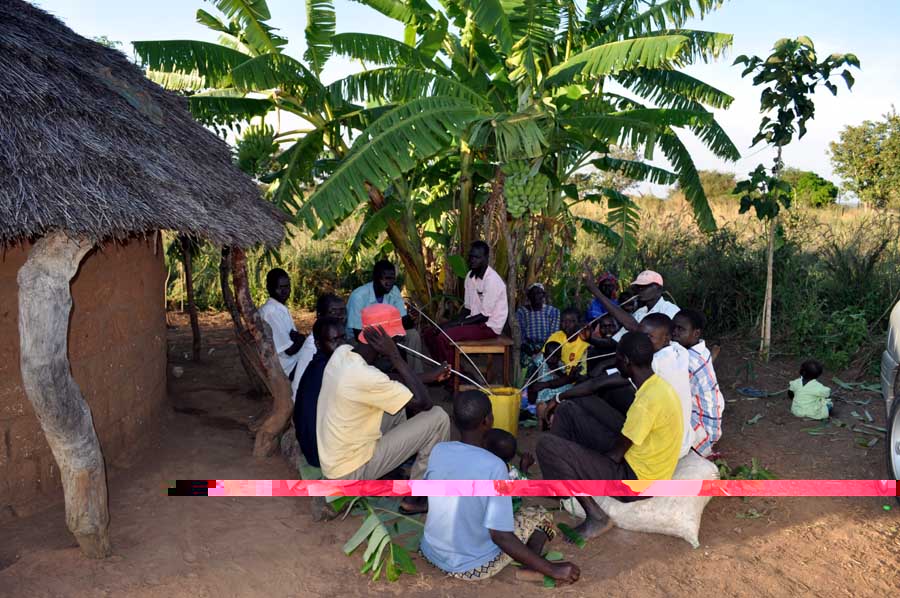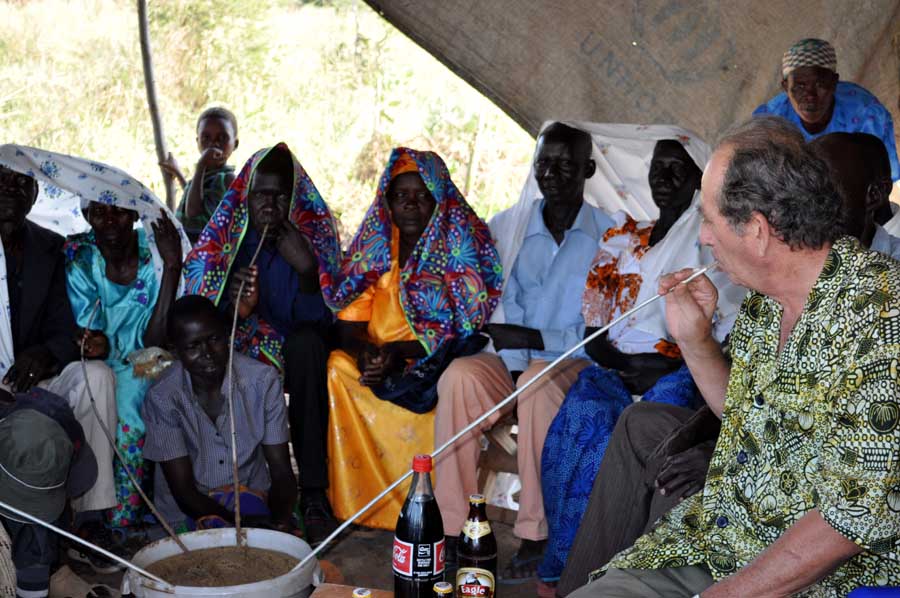«Peasant farmers unite to fight poverty»
From November 12 to 28 I was in Uganda. I took the opportunity of going out to visit some farmers’ associations in the Katawi region. One afternoon our group was comfortably seated in the shade under the trees. We had finished the introductions. At that moment the leader of the association took the floor. I was struck by the first words he uttered …
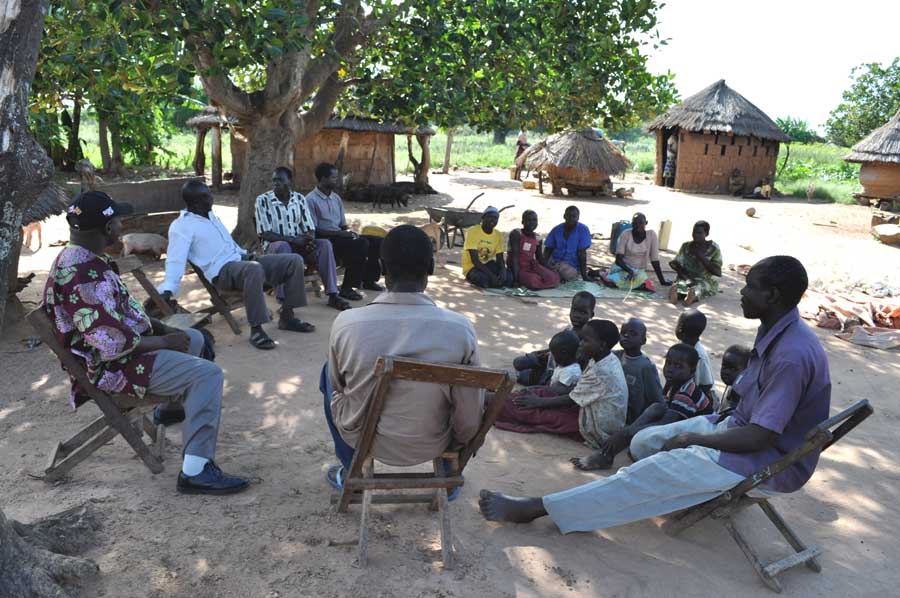
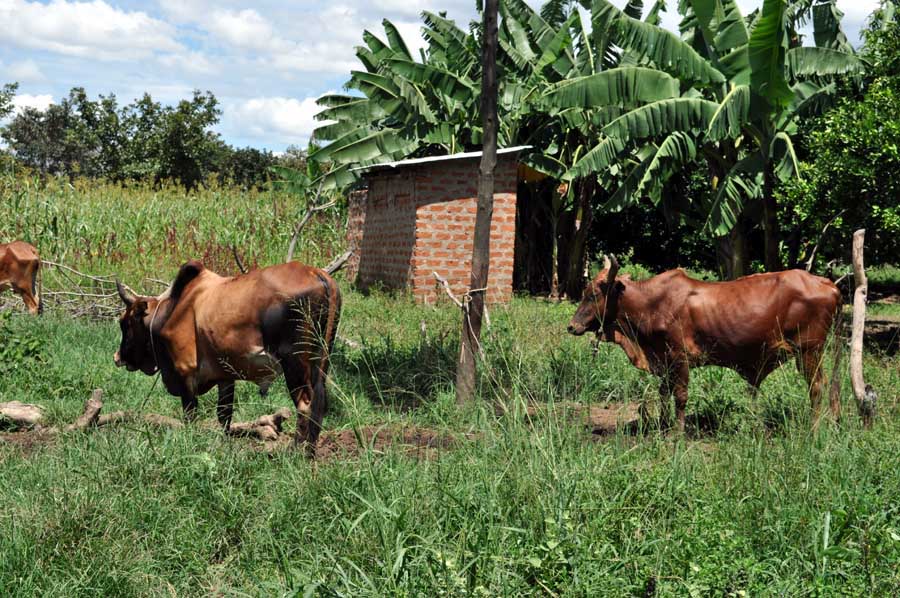 He did in fact start by saying: «We have united in order to fight poverty.” I found his words even more striking since the climate is mild and rainfall relatively abundant. Around the huts there are a great many fruit trees, mainly citrus and banana trees… it all conveys an impression of people living fairly well.
He did in fact start by saying: «We have united in order to fight poverty.” I found his words even more striking since the climate is mild and rainfall relatively abundant. Around the huts there are a great many fruit trees, mainly citrus and banana trees… it all conveys an impression of people living fairly well.
We then tried to understand why the farmers of Uganda, like so many other peasants across the world, are poor. It became clear, after a brief analysis, that the farmers sell their products (groundnuts, maize, millet, sorghum) at a very low profit. Apparently traders and processing businesses are much better organised and have larger profit margins.

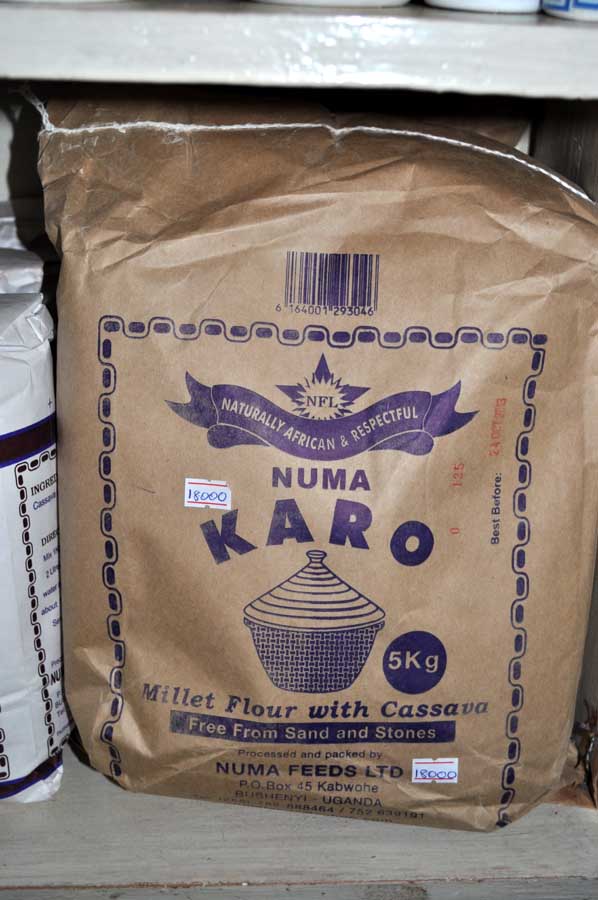 As the people in the group were both farming their land and raising cattle, we wondered if they should not look into the possibilities of organising themselves (setting up a cooperative) to take over the extraction of oil from their groundnut production themselves and sell it on the market. They would then also be able to use the remains for oil cakes and thus enhance animal feed.
As the people in the group were both farming their land and raising cattle, we wondered if they should not look into the possibilities of organising themselves (setting up a cooperative) to take over the extraction of oil from their groundnut production themselves and sell it on the market. They would then also be able to use the remains for oil cakes and thus enhance animal feed.
Following this I went to have a look at some grocery shops. I was pleased to see that there was no shortage of Ugandan domestic products and that often they were nicely exhibited. I further noticed that the prices were not particularly low. This strengthened my idea that the farmers could organise themselves better to achieve higher profits, creating cooperatives to process their products, i.e. putting millet or maize flour on the market… in attractive packaging of 1,2 or 5 kg (See picture)
I also had the pleasure of attending a wedding and taste the local Dolo ( millet beer) – here no longer from the usual calabash
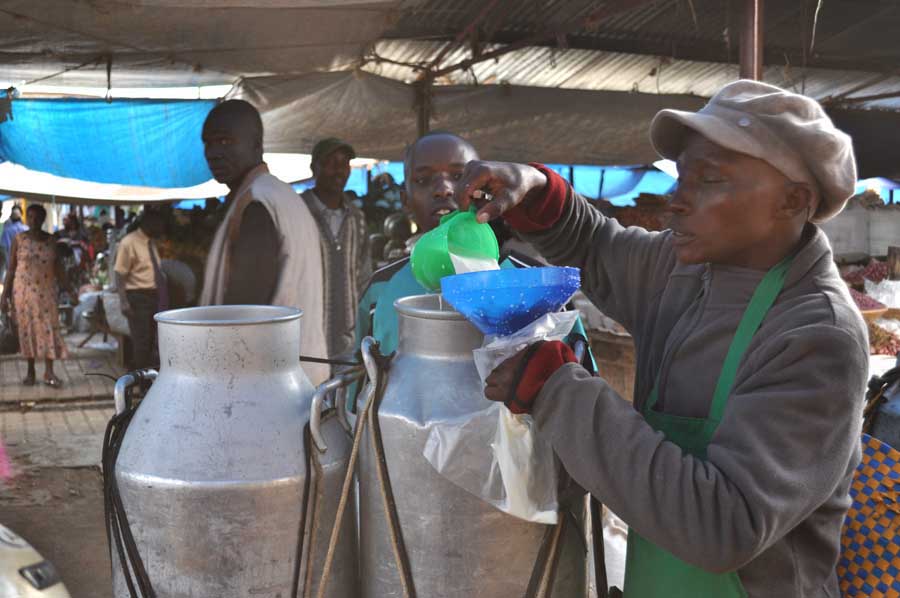
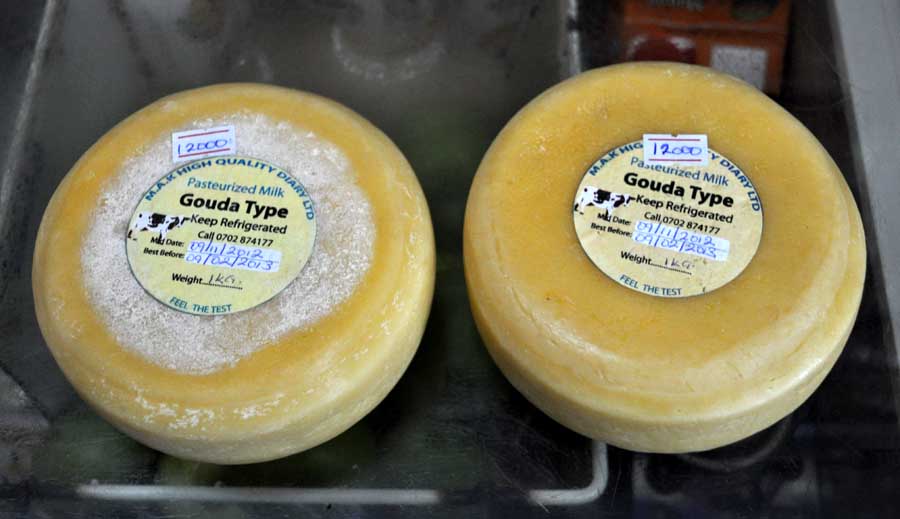 I then had a chance to travel south, to Mbarara. There I was impressed by the widespread consumption of milk. The transport of milk jerry cans, on bikes or by truck, is a regular sight. In roadside bars and cafeterias, ”maquis”, many customers drink fresh milk. Shops carry local cheese, sold under the name of « Gouda » or «Parmesan».
I then had a chance to travel south, to Mbarara. There I was impressed by the widespread consumption of milk. The transport of milk jerry cans, on bikes or by truck, is a regular sight. In roadside bars and cafeterias, ”maquis”, many customers drink fresh milk. Shops carry local cheese, sold under the name of « Gouda » or «Parmesan».
Seeing this I thought :
«It is time for us in Burkina to launch our own Tomme du Sahel!” * * (Tomme - a traditional cheese in Savoie, France and in Switzerland, NdTr)
Koudougou, December 16th 2012
Maurice Oudet
Director, SEDELAN






